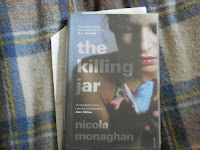Some of you may have noticed that there is a new government in town. This leaves LBR in a quandary. Naturally a Labour leaning blog, one cannot claim to be realistic and partisan at the same time.
Therefore this blog will applaud good behaviour by the current administration, whilst con-deming (gettit?) partisan, ideologically driven and unrealistic policy. For example, your correspondent expects that drug policy will continue to stumble along its current harm-enhancing trajectory. Yet there has been a surprising example where not just the government but the leader can be praised.
In the last week, a quiet corner of the UK has experienced a terrible series of shootings that Europeans like to think are exclusively an American problem. Dreadful though the murders in Cumbria were, and tempting though it may have been, ‘Call me Dave’ Cameron has refused to issue knee jerk legislation to impose greater controls on the ownership of firearms. This being even more tempting as it could so easily have slipped into Cameron’s narrative of ‘broken Britain.’
Maybe it is the point in the election cycle where the Con-Dems don’t feel the need to pander to populist knee jerk sentiment, or that he feels he will have enough on his plate with budget cuts and the like. He may not want to concern himself with guns when he has to decide how much butter to withhold from the public. And although he has not ruled out any legislation in the medium to long term, it would be wrong to tinker with the current legislation for two reasons.
Firstly, legislation on the fly is a bad idea. The Dangerous Dogs Act (1991) is the classic case where an unenforceable law, easily avoided, brought in to protect the public, was rushed through under a storm of media and public outrage to ‘do something.’ Since 1991, attacks by dangerous dogs have occurred sporadically leaving the public no safer and stakeholders such as the RSPCA unsatisfied with the act. In fact, it is pretty hard to find many that will defend the act.
Secondly, although gun control is useful, prohibition is generally a bad idea. And let’s be frank, anyone talking about the need for legislation post the Cumbria shootings will generally want to discuss banning all firearms full stop. After the Dunblane massacre in 1996, the Labour Government in 1997 introduced the Firearms (Amendment) (No. 2) Act 1997, effectively prohibiting and banning handguns, although it curiously does not cover Northern Ireland. No matter, murders and shootings involving hand guns are still as rare as they were before the act. Crucially though criminals with illegal intent can still obtain a handgun if they so require. Innocent use of a handgun (and there are innocent uses) has been prohibited, but their availability on the streets of the UK has not.
So far so good for ‘call me Dave’ on this one.









